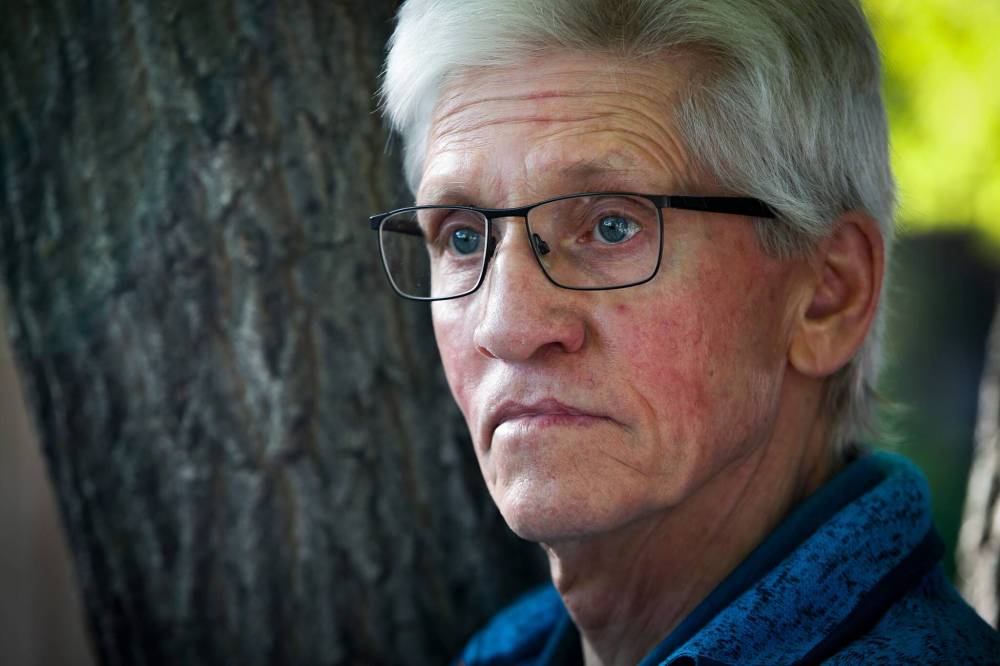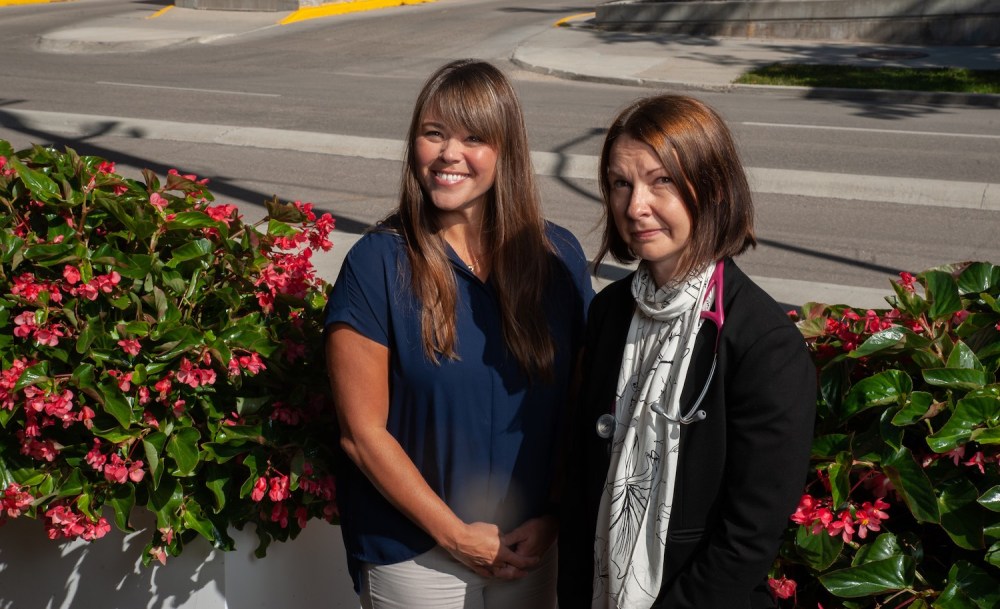Health-care contacts prove to be a breath of fresh air
‘Empathetic’ medical aides a lifeline for lung-transplant patient
Advertisement
Read this article for free:
or
Already have an account? Log in here »
To continue reading, please subscribe:
Monthly Digital Subscription
$19 $0 for the first 4 weeks*
- Enjoy unlimited reading on winnipegfreepress.com
- Read the E-Edition, our digital replica newspaper
- Access News Break, our award-winning app
- Play interactive puzzles
*No charge for four weeks then billed as $19 plus GST every four weeks. Offer only available to new and qualified returning subscribers. Cancel any time.
Read unlimited articles for free today:
or
Already have an account? Log in here »
Hey there, time traveller!
This article was published 26/09/2022 (822 days ago), so information in it may no longer be current.
For lung-transplant patient Rick Schmidt, they are his main contacts in the medical system as he awaits word about life-saving surgery — and now also among his best friends.
They are Trisha Plett, lung transplant coordinator, and Nancy Porhownik, who directs the Manitoba Lung Transplant Program.
“Those two have become much more important to me than I would have guessed when I started down this path,” said Schmidt. “I have come to appreciate not only their skills and knowledge, but also their humanity.”

JOHN WOODS / WINNIPEG FREE PRESS FILES
Rick Schmidt, who requires a lung transplant, says lung transplant co-ordinator Trisha Plett and Manitoba Lung Transplant Program director Nancy Porhownik ‘are empathetic, and that feels good.’
When he talks to them about his transplant options, “it doesn’t feel dispassionate or clinical,” he said. “They are empathetic, and that feels good.”
It’s got to the point that when they call, the conversation isn’t only about the double lung transplant. “We talk about our families, about gardening, stuff like that,” he said, adding Trisha will sometimes “call me out of the blue just to see how I’m doing.”
He felt cared for even when Porhownik delivered the news the transplant team doesn’t feel he is in a bad enough way for an immediate transplant; they think he should wait at least six months or more.
“I did feel disappointed when they said I need to wait longer,” Schmidt acknowledged, explaining the transplant team doesn’t want him to be in a worse way than now if he has trouble handling the anti-rejection drugs after surgery.
“It was hard to hear that, but they didn’t tell me in a paint-by-numbers kind of way,” he said. “I felt cared for.”
For Plett, a registered nurse, comments like that are a reminder of why she likes her job so much. “We are with the patients from the start to end of the journey,” she said. “Over the course of the experience we build up strong relationships with them. We see their ups and downs, their resilience. It’s pretty spectacular.”
There are disappointments along the way, too, she said. “There are always sad days in this job, but there are also many happy ones.”
Patients can become frustrated with the waiting, she acknowledged. “We want to be empathetic and listen, be as supportive as we can, be available to them,” she said. “We become deeply invested in our patients.”
Relating to them “is the most fulfilling part of the job,” she said. When Plett thinks about the impact of transplantation on the lives of people who get new organs, “it’s hard not to be passionate about this work.”
For Porhownik, a respirologist by training, it’s the same. “I have an amazing job, I’m grateful for it every day,” she said.
“We form strong relationships with them. That’s what keeps me going,” she said, noting she gets pictures of successful transplant patients at their weddings, anniversaries and graduations. “We follow them for a long time, we’re with them when they are most vulnerable,” she added.
It’s also her job to tell people when they aren’t eligible for a lung transplant. “The hardest part of the job is telling someone they aren’t a candidate,” she said, noting risk factors like smoking or being overweight can rule someone out.
“They come to us with such hope, so to hear no is very tough.”

The transplant team is “very particular about who gets new lungs,” she said. “We want to go with the best chance of successful transplant since lungs are in short supply.”
For that reason, the process of being accepted is “grueling,” involving a number of physical, mental and emotional tests.
Once accepted, she also needs to be honest with patients about the risks. “Heart surgery is big, but a lung transplant is bigger,” she said. “The surgery isn’t risk free. The patient could die.”
There are also big challenges after surgery. “There can be complications, and they will be on a lifetime of medications,” she said, adding the three months after surgery is the most critical time.
“During that time, we keep patients under a close watch,” she said, adding while rejection can occur, it’s not as common as it used to be. “After three months, we all breathe easier,” she said.
The average survival time for lung transplant recipients is six to seven years, she said, although some live longer. “It depends on a number of things, such as age and health at the time of the transplant,” she said.
Following along with patients can be “a rollercoaster at times,” she said, noting about 10 Manitobans get a lung transplant each year. “We’d like to do more, but it depends on organ donations,” she said.
For Schmidt, knowing people like Plett and Porhownik will be with him the rest of his life is very significant. “My relationship with them can’t be overstated,” he said. “I like them, I like talking to them, even when they give me news I don’t want to hear.”
Right now he feels in limbo, in a state of suspended animation as he awaits developments. “But knowing they are there for me, and will be all the way through, helps. These people have become a very large piece of my life.”
To become an organ donor, visit signupforlife.ca.
The Free Press is committed to covering faith in Manitoba. If you appreciate that coverage, help us do more! Your contribution of $10, $25 or more will allow us to deepen our reporting about faith in the province. Thanks! BECOME A FAITH JOURNALISM SUPPORTER

John Longhurst
Faith reporter
John Longhurst has been writing for Winnipeg's faith pages since 2003. He also writes for Religion News Service in the U.S., and blogs about the media, marketing and communications at Making the News.
Our newsroom depends on a growing audience of readers to power our journalism. If you are not a paid reader, please consider becoming a subscriber.
Our newsroom depends on its audience of readers to power our journalism. Thank you for your support.
The Free Press acknowledges the financial support it receives from members of the city’s faith community, which makes our coverage of religion possible.



